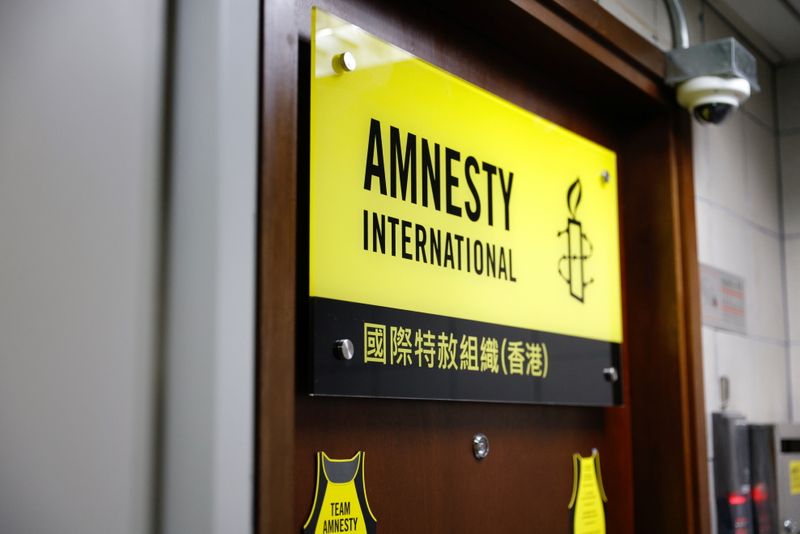(Reuters) – The International Olympic Committee (IOC) has entered dangerous waters by taking part in a call with Peng Shuai that was meant to provide assurances over the Chinese player’s safety, human rights group Amnesty International said on Monday.
Peng, a former doubles world number one, had a video call on Sunday with IOC president Thomas Bach and told him she was safe and well after Western governments and the global tennis community expressed mounting concern for her wellbeing.
The 35-year-old had not been seen for nearly three weeks since alleging on social media that former Vice Premier Zhang Gaoli had sexually assaulted her.
Neither Zhang nor the Chinese government have commented on Peng’s allegations.
The Chinese Foreign Ministry did not immediately respond to an email request on Monday for comment on the Amnesty statement.
“The IOC is entering dangerous waters. They should be extremely careful not to participate in any whitewash of possible human rights violations,” said Amnesty’s China researcher Alkan Akad.
“In the past we have seen various similar cases where people had no option but to say what they had been told to,” he said.
Akad said the video call was barely convincing and did little to alleviate fears over the player’s wellbeing, echoing the Women’s Tennis Association (WTA) earlier on Monday.
“The Chinese government has a track record, especially the state run media outlets of fabricating statements or making people give forced and sometimes televised testimonies shortly after people go missing,” said Akad.
Akad called on the Chinese government to investigate allegations of sexual abuse and ensure that the survivors have a platform to express themselves freely, and without any adverse consequences.
(Reporting by Iain Axon, writing by Dhruv Munjal in Bengaluru; Editing by Jon Boyle)



















